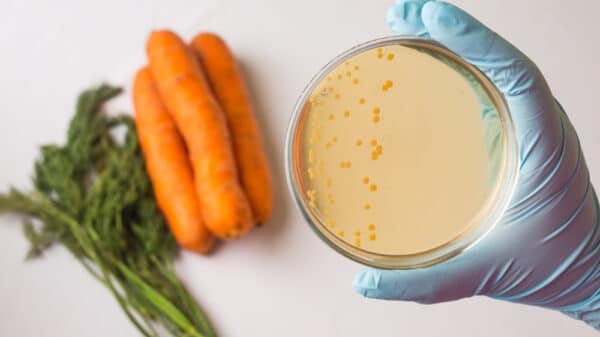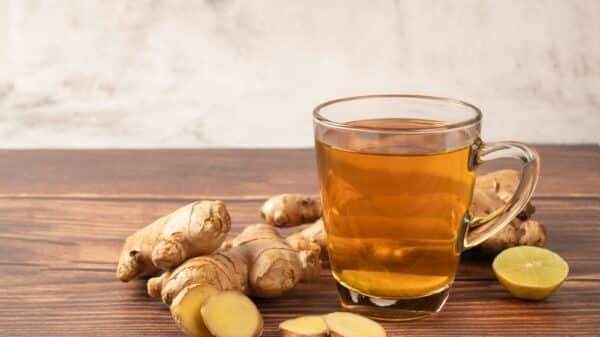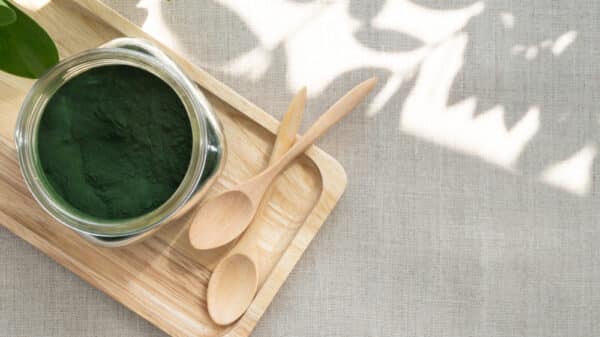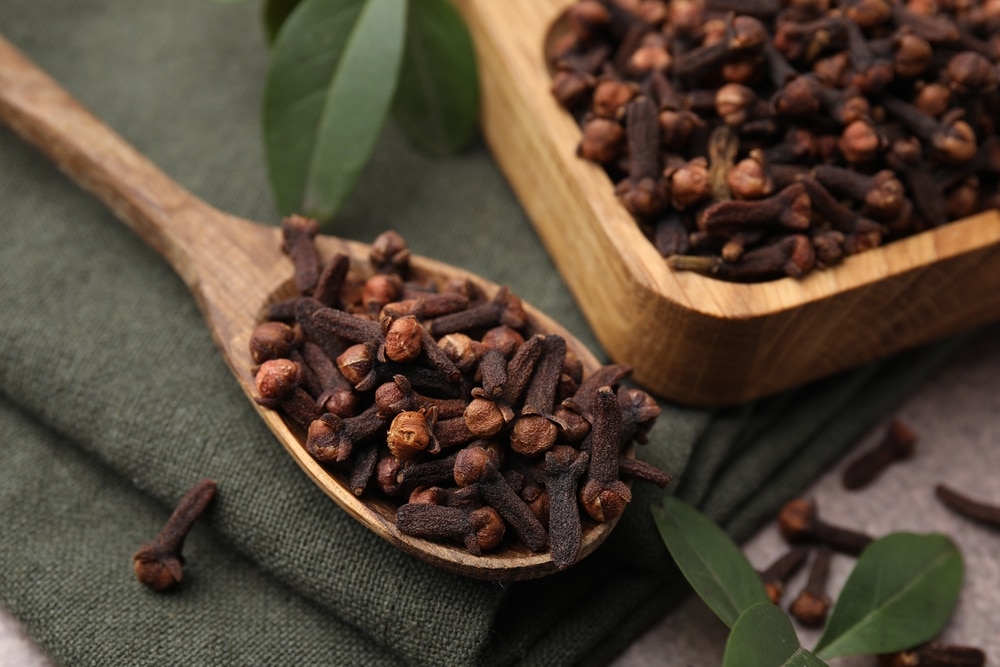Cloves are the dried flower buds from a tropical evergreen tree that originates from Indonesia. These aromatic buds have been utilized in various cuisines for centuries and are potent components in both Ayurveda and traditional Chinese medicine due to their pain-relieving properties. The advantages of cloves extend beyond their culinary uses; this antioxidant-rich spice also provides significant nutritional benefits, assisting with inflammation and digestion. Here are some compelling reasons to incorporate cloves into your diet.
11 Key Benefits of Cloves
1. Cloves Are High in Fiber
One effective strategy for promoting digestion and regular bowel movements is ensuring adequate fiber intake daily. Luckily, cloves contribute well in this area. “For a spice, cloves are impressively rich in fiber,” states dietitian Amy Gorin, RDN. “Just one teaspoon of cloves contains nearly a gram of fiber.”
2. Cloves Can Help Control Blood Sugar Levels
Gorin notes that cloves contain manganese, a mineral helpful in managing blood sugar levels. “Adding a sprinkle of cloves to your meals is a simple way to harness this benefit,” she advises.
3. Cloves Have Antibacterial Properties
While there are numerous ways to enhance oral hygiene, like expert-recommended mouthwashes and foods beneficial for dental health, cloves can also contribute positively. “Research has explored clove oil as an antibacterial agent1,” says Gorin. “A study found that a mouth rinse featuring clove, basil, and tea tree oil effectively combats plaque and bacteria in the mouth.”
4. Cloves Can Ease Tooth Pain
Notably, cloves may serve as a natural remedy for toothaches due to their pain-relieving properties, particularly from compounds like eugenol, which acts as an antiseptic. A study indicated that clove oil can help alleviate pain caused by dry socket.
5. Cloves Exhibit Anti-Inflammatory Properties
Another significant benefit of cloves lies in their anti-inflammatory qualities. Research has suggested that the eugenol found in cloves can diminish inflammatory responses in the body. Incorporating clove oil or adding cloves to your tea may aid in alleviating joint pain, arthritis, and issues like muscle strains and sprains.
6. Cloves Can Help Combat Aging
Rich in antioxidants, cloves play a role in supporting the body’s defenses against aging.
Serena Poon, a renowned chef, nutritionist, and reiki master, discusses how dietary choices can help mitigate the effects of aging. “Foods rich in antioxidants, with their anti-inflammatory properties, epigenetic factors, and enhanced mitochondrial function, promote longevity and energy,” Poon asserts. To incorporate more antioxidants into your diet, she suggests adding cloves to smoothies, rice dishes, or desserts for an easy boost.
7. Cloves can function as a cough suppressant
If you start to feel a cough coming on, cloves may serve as a useful home remedy. “In Ayurvedic medicine, cloves are utilized to ease coughs by relaxing the throat muscles,” Poon explains. She recommends chewing the cloves (but not swallowing them) or brewing them into tea, preferably sweetened with honey. For an extra boost of antibacterial and antiviral properties, Poon advises using mānuka honey.
8. Cloves can act as an insect repellent
If you tend to attract insects, having cloves on hand can be beneficial as their fragrance repels bugs like mosquitoes, ants, and wasps. “Studies indicate that a compound in cloves known as eugenol serves as an effective insecticide,” Poon mentions. “A spray made from diluted clove oil could offer an efficient natural pest control solution for your home,” she adds.
9. Cloves may enhance skin health
Surprisingly, cloves also have applications in skincare. Poon notes that the topical use of clove oil might benefit skin health. “Due to its anti-inflammatory characteristics, clove oil can be an effective treatment for skin inflammation,” she explains. “Furthermore, its antibacterial properties can help address acne caused by bacteria.” Just be sure to conduct a patch test to avoid any allergic reactions.
10. Cloves can provide relief from digestive discomfort
Using cloves for digestive issues is a well-established practice in Ayurvedic medicine. “Cloves are believed to soothe the stomach lining and are commonly used to alleviate nausea, bloating, and vomiting,” Poon states. To utilize their benefits, she recommends steeping cloves in a ginger tea and enjoying it.
11. Cloves are a good source of magnesium
In addition to supporting gut health, magnesium is known to improve sleep quality. It aids in regulating heartbeat, enhancing digestion, and promoting relaxation—essential aspects for a restful night. A tablespoon of cloves offers 5.4 mg of magnesium, which adds up as sleep hygiene becomes increasingly vital; every little bit from our diets helps.
Are there health benefits to drinking clove water?
Amy Shapiro, MS, RD, CDN, a registered dietitian and the founder and director of Real Nutrition, states that drinking clove-infused water can have numerous advantages, especially for gut health. “Clove-infused water helps maintain hydration, enhances digestion, flushes out bacteria, and boosts the immune system. It can also reduce gas and improve digestion rates,” Shapiro notes. However, she emphasizes that if digestion and regularity are your primary concerns, ensuring adequate daily water intake is typically sufficient.
Nutritional profile of cloves
A tablespoon of ground cloves contains approximately:
- 18 calories
- 4 grams of carbohydrates
- 2.2 grams of fiber
- 0.15 grams of sugar
- 0.4 grams of protein
- 1.3 grams of fat
- 40.5 mg of calcium
- 9 mcg of vitamin K
- 1.9 mg of manganese
- 0.573 mg of vitamin E
- 0.081 mg of vitamin B6
- 6 mcg of folate
Are there any risks associated with cloves?
While cloves can offer numerous benefits, moderation is essential, as excessive consumption can pose problems. “If you bake a batch of muffins with cloves and enjoy a couple, that should be fine,” Gorin explains. She suggests being cautious about high amounts at once and consulting with a healthcare provider to confirm safety.
Could cloves have side effects?
“I advise consulting with your doctor before using cloves in medicinal amounts or utilizing clove oil in your diet, as there could be risks with increased consumption,” Gorin warns. “Children, as well as pregnant or breastfeeding women, should refrain from using clove oil or high doses of cloves. In children, clove oil has the potential to trigger seizures, liver damage, or fluid imbalances. Also, since clove oil contains eugenol, which may inhibit blood clotting, the National Library of Medicine recommends against its use at least two weeks prior to surgery, and individuals with bleeding disorders should avoid it entirely,” she adds.
Those on certain medications should also take precautions with cloves in their diets. “There could be interactions with clove oil and higher doses with medications like aspirin, ibuprofen, naproxen, and warfarin, so it’s wise to consult your physician before incorporating large amounts of cloves into your meals,” Gorin concludes. Additionally, applying clove oil on the gums or mouth can potentially cause damage, highlighting that in this case, less is more.
What are the uses of cloves in cooking (and beyond)?
Now that you’re well-informed on the benefits and risks of cloves, you might be wondering how to actually use them. Below are some innovative ideas to get you started.
Given the benefits of cloves—like promoting anti-aging, enhancing skin health, and regulating hunger levels—they certainly deserve a place in your pantry. The great news is that there are countless creative ways to include cloves in your diet and daily routine, ensuring you won’t overlook them.
8 innovative ways to utilize cloves
1. Incorporate cloves into your tea
One straightforward method to enjoy the benefits of cloves is by adding them to your tea—especially chai. Ayurvedic experts highlight cloves as particularly beneficial for the kapha dosha (your constitution) due to their cleansing and purifying properties. If tea isn’t your preference, consider spicing up your coffee—it’s a delightful fusion too.
2. Use…
Cloves as a Natural Cleaner
Thanks to their antibacterial qualities, cloves serve as an excellent natural cleaning agent. Opt for essential oil versions and mix a few drops into water, along with your favorite pleasant-smelling DIY cleaning products, to help disinfect various surfaces in your home.
3. Incorporate Cloves into Your Smoothies
One quick method to enhance the flavor of your smoothie is by adding cloves. “I have a pumpkin smoothie recipe that I adore, featuring ground cloves and other warming, anti-inflammatory spices like nutmeg,” shares Gorin. Delicious.
4. Use Cloves as an Air Freshener
If you enjoy stovetop potpourri, cloves are the ideal addition, bringing their rich, spicy aroma. Mix a few cloves with a couple of cinnamon sticks and a dash of vanilla to create a warm, inviting scent throughout your home.
5. Enhance Your Baked Goods with Cloves
Adding cloves to your baked items instantly elevates the cozy atmosphere. “I find the warm spiciness of cloves quite lovely, and I often incorporate it into my muffins,” Gorin notes. Most autumn baking spice blends—like those for apple and pumpkin—include cloves.
6. Create a Pomander
Crafting a pomander, or what Poon refers to as “aromatic ornaments,” is another enjoyable way to fill your home with delightful scents using cloves. “These ornaments release an invigorating natural fragrance that can enhance your space and energy,” she explains. To create one, you’ll need an orange and a package of whole cloves. “Insert the cloves into your orange, one at a time,” she advises. You can either cover the entire surface of the orange or design a fun pattern. The choice is yours.
7. Dress Up Desserts with Clove Syrup
Indeed, clove syrup exists! Here’s how to prepare it: Simmer equal parts water and sugar, along with additional spices, until it reaches a syrupy consistency. Once it has cooled, you can either store it or use it to drizzle over ice cream, desserts, or even cocktails. Yes, yes, and yes.
8. Prepare Mulled Wine
Bring festive cheer during the winter months by making mulled wine at home, which Poon indicates commonly includes a variety of spices, cloves being one of them.
Image Source: New Africa / Shutterstock

































